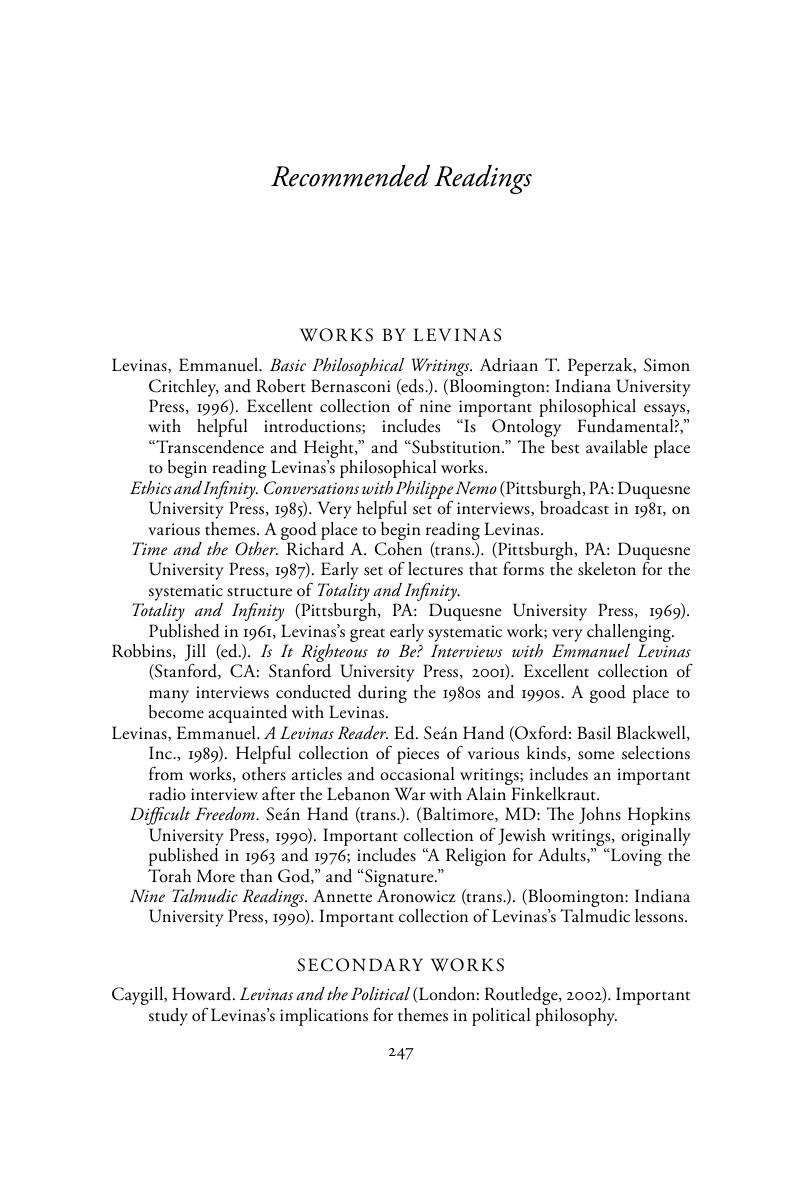Book contents
- Frontmatter
- Contents
- Preface
- Introduction
- 1 Responding to Atrocity in the Twentieth Century
- 2 How to Read Levinas: Normativity and Transcendental Philosophy
- 3 The Ethical Content of the Face-to-Face
- 4 Philosophy, Totality, and the Everyday
- 5 Subjectivity and the Self: Passivity and Freedom
- 6 God, Philosophy, and the Ground of the Ethical
- 7 Time, History, and Messianism
- 8 Greek and Hebrew: Religion, Ethics, and Judaism
- Conclusions, Puzzles, Problems
- Recommended Readings
- Index
- References
Recommended Readings
Published online by Cambridge University Press: 05 June 2012
- Frontmatter
- Contents
- Preface
- Introduction
- 1 Responding to Atrocity in the Twentieth Century
- 2 How to Read Levinas: Normativity and Transcendental Philosophy
- 3 The Ethical Content of the Face-to-Face
- 4 Philosophy, Totality, and the Everyday
- 5 Subjectivity and the Self: Passivity and Freedom
- 6 God, Philosophy, and the Ground of the Ethical
- 7 Time, History, and Messianism
- 8 Greek and Hebrew: Religion, Ethics, and Judaism
- Conclusions, Puzzles, Problems
- Recommended Readings
- Index
- References
Summary

- Type
- Chapter
- Information
- The Cambridge Introduction to Emmanuel Levinas , pp. 247 - 252Publisher: Cambridge University PressPrint publication year: 2011



